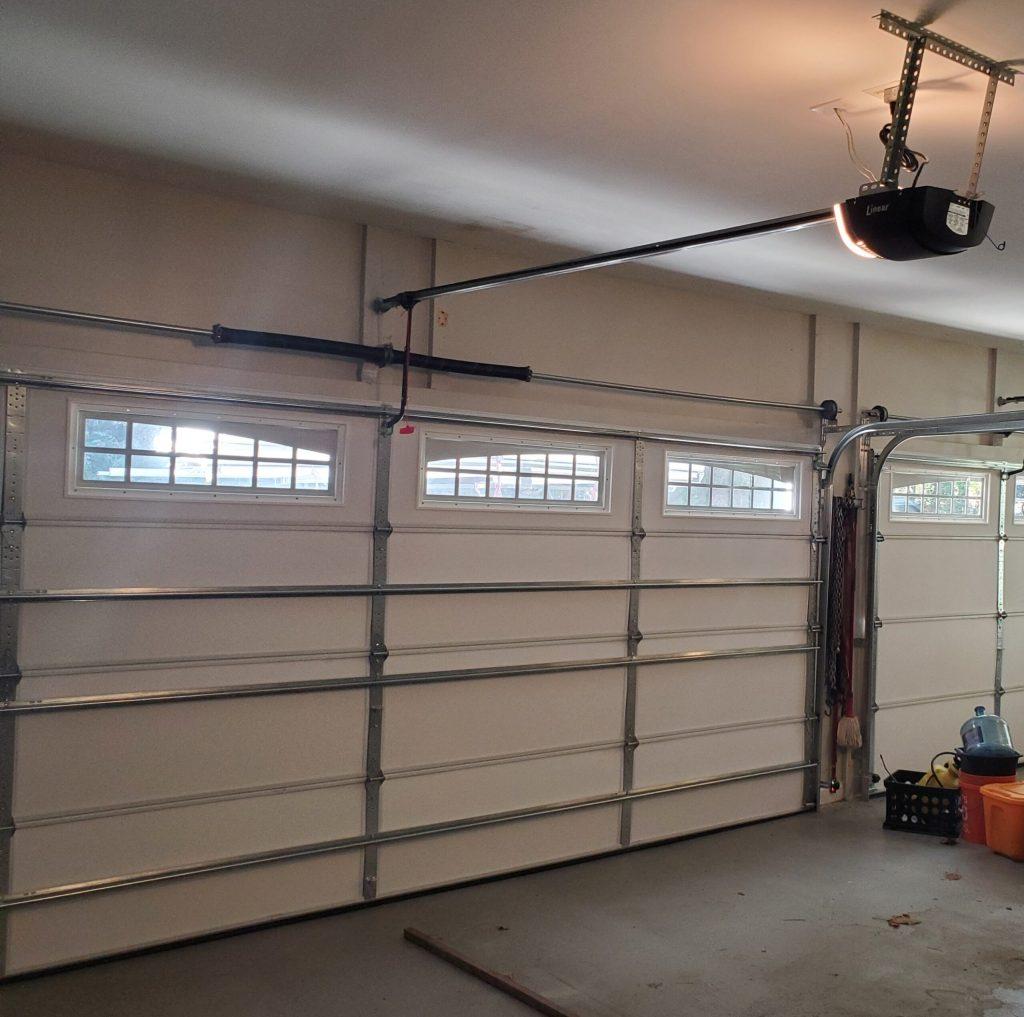Imagine returning home on a dark, chilly night, eager to park your car safely in the garage, only to find that your garage door opener doesn’t work. It’s a frustrating situation that many homeowners have encountered, and it seems to happen at the most inconvenient times – during the night. In this article, we will explore the common reasons behind a garage door opener malfunctioning at night and provide you with practical solutions to ensure your garage door operates smoothly, even after the sun has set.

Understanding Your Garage Door Opener
Before addressing nighttime issues, let’s grasp the fundamentals of a garage door opener. It comprises a motor, a drive system (belt, chain, or screw), and a control mechanism (remote, keypad, or app). The motor activates when you press the door button, and the drive system moves the door along its track.
Common Reasons for Nighttime Malfunctions
- Photoelectric Sensor Obstruction: One of the most common reasons for a garage door opener not working at night is the obstruction of the photoelectric sensors. These sensors are located near the bottom of the garage door tracks and are designed to detect objects or obstructions in the door’s path. If something is blocking the sensor’s beam, the door won’t operate.
- Weak Garage Door Opener Light: Most garage door openers are equipped with a built-in light that illuminates the garage when the door is in operation. If the light bulb is dim or burnt out, it can make it challenging to see clearly in the dark, leading to difficulties operating the opener.
- Remote Control Interference: Interference from other devices or radio signals can disrupt the communication between your remote control and the garage door opener, making it seem like the opener isn’t working.
- Power Fluctuations: Nighttime may bring power fluctuations or voltage drops that affect the performance of your garage door opener. Sudden power surges or outages can disrupt the opener’s electrical components.
Troubleshooting Steps
Now that we’ve identified the common reasons for a garage door opener malfunctioning at night, let’s explore the troubleshooting steps to address these issues and ensure your garage door functions flawlessly, day or night.
Step 1: Check the Photoelectric Sensors
Begin by inspecting the photoelectric sensors located on either side of the garage door. Ensure they are clean and free from any debris or obstructions. If they appear misaligned, adjust them until the indicator lights on both sensors are solid.
Step 2: Inspect and Replace the Garage Door Opener Light Bulb
If your garage door opener has a light bulb, check its condition. If it’s dim or burnt out, replace it with a new one. A well-lit garage makes it easier to operate the opener at night.
Step 3: Address Remote Control Interference
If you suspect remote control signal interference, change the opener frequency or check for nearby electronic devices causing the issue. You can also consult your opener’s manual for instructions on adjusting the frequency.
Step 4: Consider a Surge Protector
To protect your garage door opener from power fluctuations, consider installing a surge protector. This device can help stabilize the voltage supplied to your opener and prevent damage due to sudden surges or outages.
Conclusion
A garage door opener that doesn’t work at night can be a frustrating and inconvenient problem to deal with. Troubleshoot common problems like sensor blockages, weak bulbs, remote interference, and power fluctuations for a smooth and safe garage door. Seek professional help if problems persist or if you’re uncertain about the steps. Remember, a well-maintained garage door opener is essential for the security and functionality of your home, day and night.



Leave a Reply